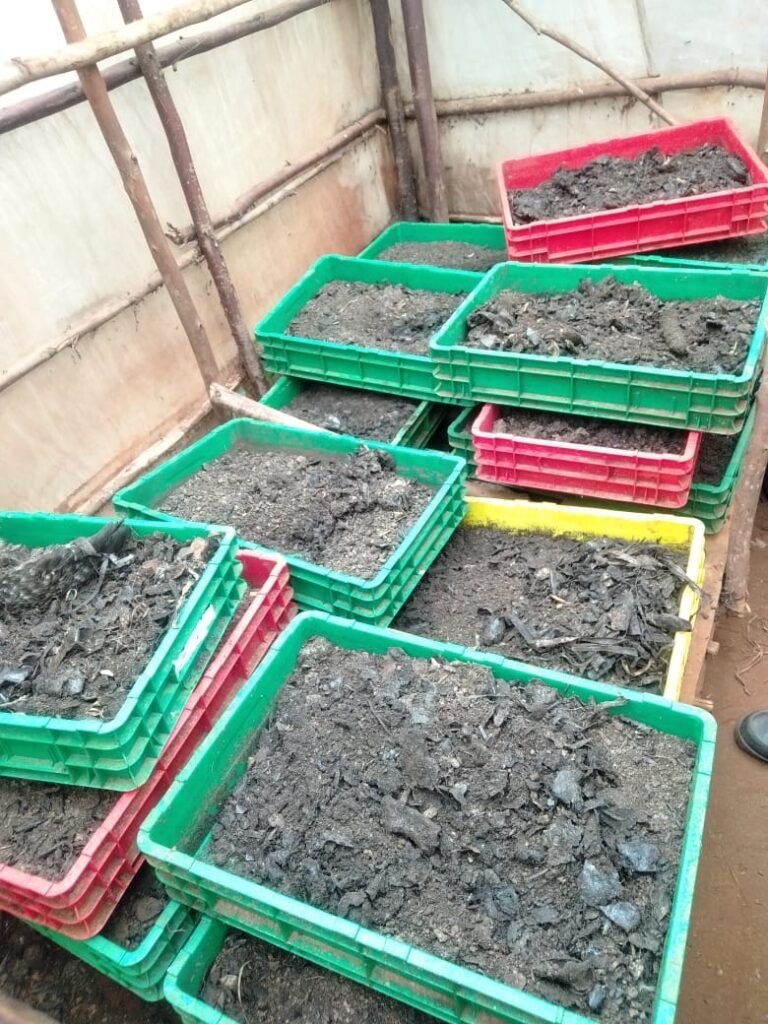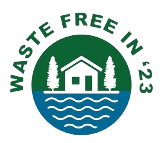Turning Food Waste into Animal Feed with Black Soldier Flies: A Climate-Friendly Solution – An Easy Comprehensive Summary
In many cities, managing food waste is a significant challenge. In Kampala, Uganda’s capital, heaps of organic waste from markets often end up in landfills, causing environmental problems. A study by researchers from Wageningen University explored an innovative solution: using Black Soldier Fly Larvae (BSFL) to transform this waste into valuable animal feed, benefiting both the economy and the environment.
What Are Black Soldier Flies?
Black Soldier Flies are insects whose larvae can consume large amounts of organic waste. As they feed, the larvae grow into protein-rich grubs suitable for animal feed. After the larvae are harvested, their waste, known as “frass,” can be used as a natural fertilizer.

The Study’s Findings
The researchers conducted a Life Cycle Assessment to evaluate the environmental impact of producing dried BSFL in Kampala. They discovered that producing one kilogram of dried larvae results in the emission of 3.1 kilograms of carbon dioxide equivalents (CO₂eq). However, this process prevents the emission of 9.7 kilograms of CO₂eq. This net reduction occurs because:
Avoided Landfill Emissions: By diverting organic waste from landfills, methane emissions—a potent greenhouse gas—are significantly reduced.
Replacing Traditional Animal Feed: BSFL can substitute for conventional animal feeds like soybean meal, whose production is resource-intensive and environmentally taxing.
Reducing Chemical Fertilizer Use: The frass left after harvesting larvae serves as an effective organic fertilizer, decreasing the need for synthetic fertilizers that can harm the environment.
Economic Benefits
Cost-Effective Animal Feed: Producing BSFL-based feed locally can reduce reliance on imported feeds, lowering costs for farmers.
Job Creation: Establishing BSFL production facilities offers employment opportunities in waste collection, larvae farming, and processing.
Waste Valorization: Transforming organic waste into valuable products like animal feed and fertilizer creates new revenue streams and promotes a circular economy.
Environmental Benefits
Greenhouse Gas Reduction: The study highlights a net reduction of 6.6 kilograms of CO₂eq for every kilogram of dried larvae produced, contributing to climate change mitigation.
Waste Management: Utilizing organic waste for BSFL production reduces the burden on landfills and decreases environmental pollution.
Soil Health Improvement: Applying frass as fertilizer enhances soil fertility and structure, promoting sustainable agriculture.
Conclusion
The research indicates that using Black Soldier Fly Larvae to process organic waste in Kampala presents a sustainable solution with significant economic and environmental advantages. By converting waste into valuable resources, this approach supports local economies, reduces greenhouse gas emissions, and promotes better waste management practices.
Got questions?
